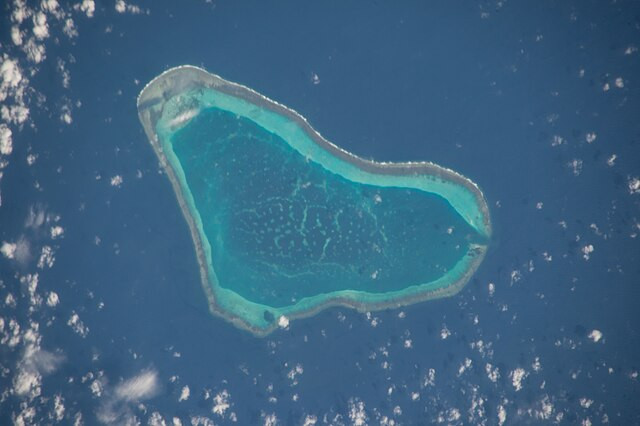China's decision to formally delineate baselines around Scarborough Shoal, a contested feature in the South China Sea, has heightened tensions with the Philippines over territorial claims in the region. The announcement, published online by China's Foreign Ministry, outlines geographic coordinates for the shoal and could intensify a longstanding dispute over a crucial area that both nations claim.
Scarborough Shoal, which lies west of the Philippines' main island of Luzon, has been under Chinese control since 2012 when Beijing seized it and restricted access for Filipino fishermen. Despite a 2016 ruling by an international arbitration court that invalidated most of China's expansive claims in the South China Sea, Beijing has refused to recognize or comply with the judgment.
The timing of China's move appears pointed, coming just two days after Philippine President Ferdinand Marcos Jr. signed new laws, including the Philippine Maritime Zones Act, that define Manila's claims in the disputed waters. China's Foreign Ministry sharply criticized the Philippine legislation, stating it violates Chinese sovereignty. "China firmly opposes it and will continue to do everything necessary in accordance with law to firmly defend its territorial sovereignty and maritime rights and interests," the ministry said in a statement.
The delimitation of baselines is a significant step because a nation's territorial waters and exclusive economic zones are defined by their distance from these lines. According to a Chinese Foreign Ministry spokesperson, the move aligns with international law and existing United Nations agreements. "This is a natural step by the Chinese government to lawfully strengthen marine management and is consistent with international law and common practices," the statement read.
For years, Scarborough Shoal has been a flashpoint in China-Philippines relations. Chinese and Philippine vessels have frequently clashed in the area, with incidents ranging from collisions to confrontations involving water cannons deployed by the Chinese coast guard against Philippine boats. The shoal's strategic significance extends beyond its immediate resources; the South China Sea itself is a key maritime route vital to global shipping and commerce.
China's broader claim in the South China Sea encompasses nearly all of the waters, putting it at odds with not just the Philippines, but also several Southeast Asian nations, including Vietnam. Beijing's ongoing efforts to assert its presence have included building artificial islands and militarizing key outposts, drawing condemnation from regional and international actors, including the United States.
The Philippine government's recent legislative moves, signed by President Marcos, are seen as an attempt to solidify its maritime claims amid escalating tensions. However, China's swift response underscores the geopolitical complexities and the potential for further escalation. "This is not a new conflict, but China's timing of such announcements always has strategic undertones," said Collin Koh, a research fellow at the S. Rajaratnam School of International Studies in Singapore.






